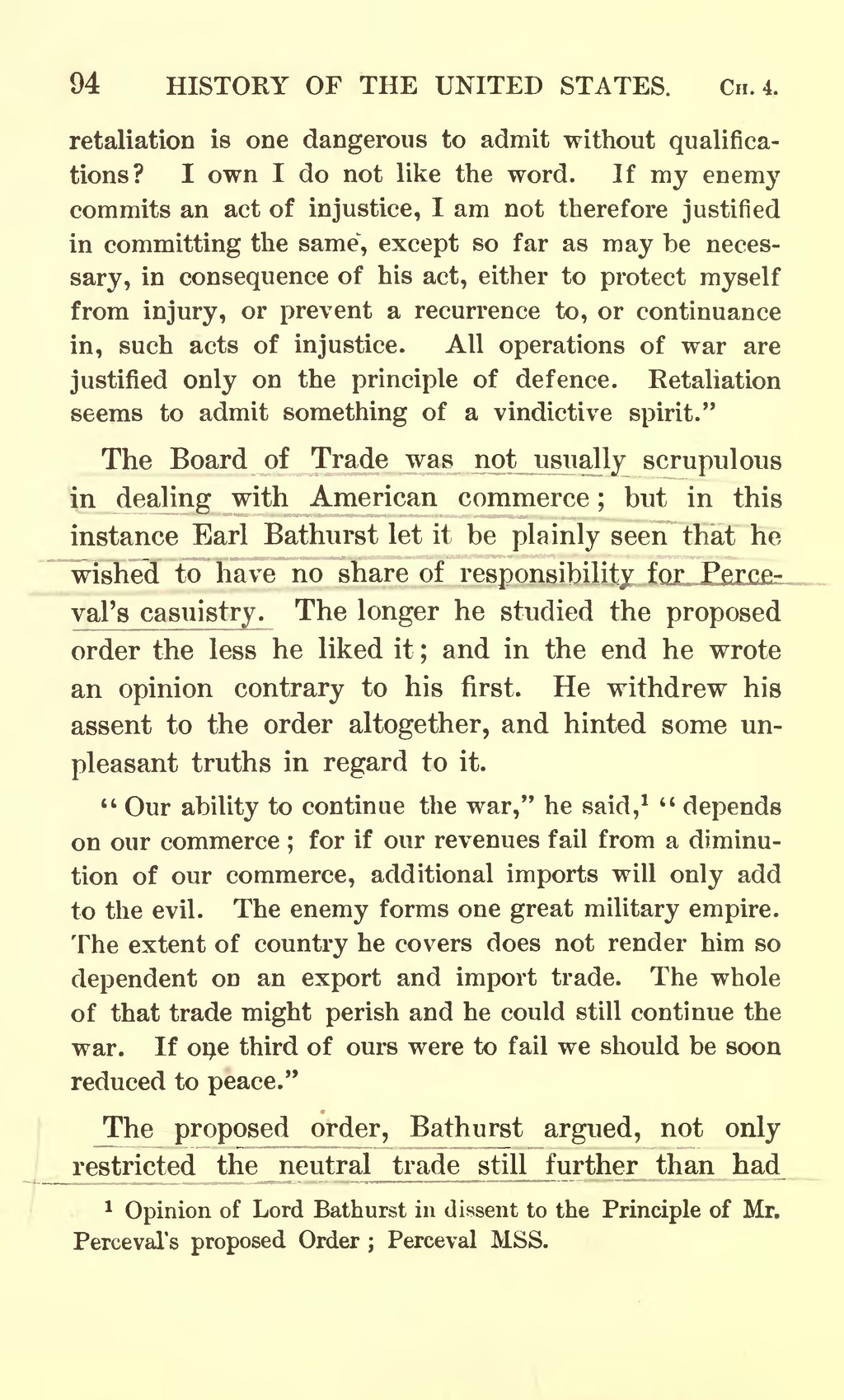retaliation is one dangerous to admit without qualifications? I own I do not like the word. If my enemy commits an act of injustice, I am not therefore justified in committing the same, except so far as may be necessary, in consequence of his act, either to protect myself from injury, or prevent a recurrence to, or continuance in, such acts of injustice. All operations of war are justified only on the principle of defence. Retaliation seems to admit something of a vindictive spirit."
The Board of Trade was not usually scrupulous in dealing with American commerce; but in this instance Earl Bathurst let it be plainly seen that he wished to have no share of responsibility for Perceval's casuistry. The longer he studied the proposed order the less he liked it; and in the end he wrote an opinion contrary to his first. He withdrew his assent to the order altogether, and hinted some unpleasant truths in regard to it.
- "Our ability to continue the war," he said,[1] "depends on our commerce; for if our revenues fail from a diminution of our commerce, additional imports will only add to the evil. The enemy forms one great military empire. The extent of country he covers does not render him so dependent on an export and import trade. The whole of that trade might perish and he could still continue the war. If one third of ours were to fail we should be soon reduced to peace."
The proposed order, Bathurst argued, not only restricted the neutral trade still further than had
- ↑ Opinion of Lord Bathurst in dissent to the Principle of Mr. Perceval's proposed Order; Perceval MSS.
